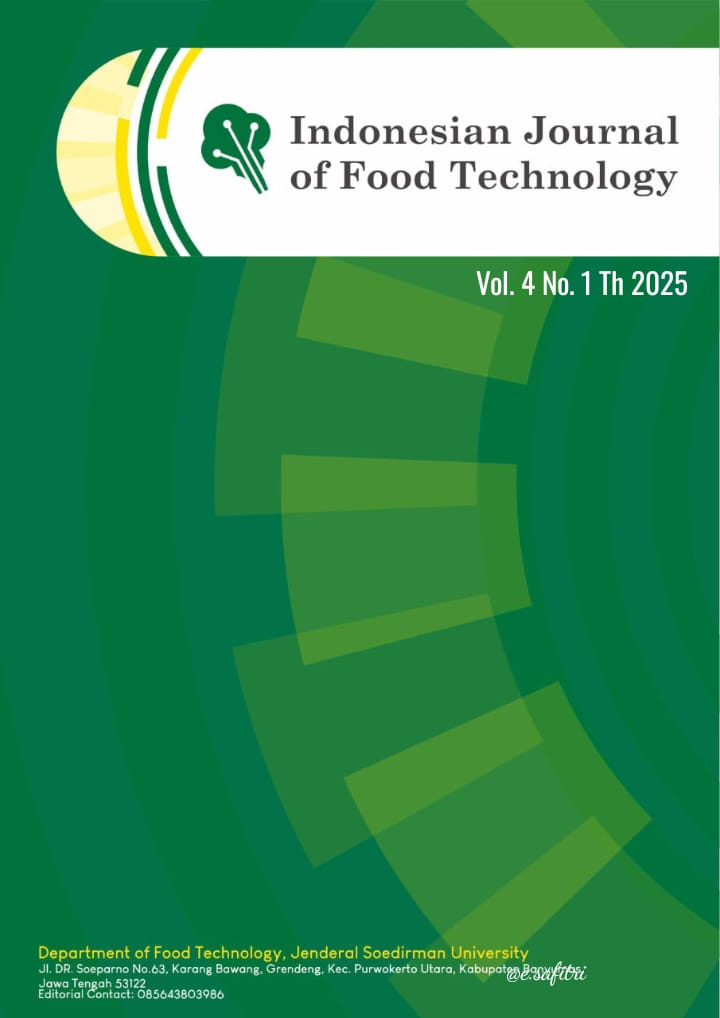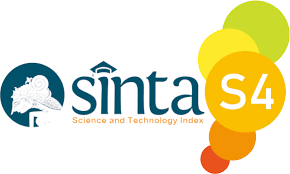Muslim Consumer Preferences in Cirebon Toward Halal Certified Food Products
Abstract
This study aims to understand how the preferences of Muslim consumers in Cirebon toward halal-certified products are influenced by the prevailing social, cultural, and religious values within their communities. Using a socio-anthropological approach and the theory of innovation adoption, this research examines the social processes shaping halal consumption decisions and how halal products are selected not only for religious reasons but also as expressions of social identity. The research employs a qualitative method with a mini ethnographic approach, including in-depth interviews with consumers, participant observation, and documentation in both urban and rural areas of Cirebon. The key findings reveal that families, Islamic boarding schools (pesantren), and religious organizations play significant roles as agents of change in promoting the adoption of halal products. Moreover, innovation characteristics such as observability and trialability emerge as critical factors in encouraging acceptance, especially when supported by trusted community or religious figures. The novelty of this study lies in uncovering that preferences for halal products are not solely driven by individual religious consciousness, but also by social pressure and a desire to maintain collective Muslim identity in Cirebon. Academically, this research contributes to a deeper understanding of innovation adoption dynamics within religious and cultural contexts and offers a new perspective on halal certification as a symbolic marker of morality and identity. It also provides a theoretical and practical foundation for developing more culturally contextualized halal education strategies.
References
Ahyani, H., Mahfud, M., Waluyo, R., Ulya, W., & Muharir, M. (2021). The Potential of Halal Food as A Driver of the Economic Development in Regional Community. Jurnal Pariwisata Terapan, 4(2), 163. https://doi.org/10.22146/jpt.63771
Andriyani, A. (2019). Kajian Literatur pada Makanan dalam Perspektif Islam dan Kesehatan. Jurnal Kedokteran Dan Kesehatan, 15(2), 178. https://doi.org/10.24853/jkk.15.2.178-198
Badan Pusat Statistik. (2010). Penduduk Menurut Wilayah dan Agama yang Dianut.
Baruah, T. D. (2012). Effectiveness of Social Media as a tool of communication and its potential for technology enabled connections: A micro-level study. International Journal of Scientific and Research Publications, 2(5), 1–10. https://doi.org/ISSN 2250-3153
E. O. Aruma and Melvins Enwuvesi Hanachor Department. (2017). Abraham Maslow’s Hierarchy of Needs And Assessment of Needs in Community Development. International Journal of Development and Economic Sustainability, 5(7), 15–27.
Fadzlillah, N. A., Man, Y. B. C., Jamaludin, M. A., Rahman, S. A., & Al-kahtani, H. A. (2011). Halal Food Issues from Islamic and Modern Science Perspectives. 2nd International Conference on Humanities, Historical, and Social Sciences, 17, 159–163.
Frastiawan, D., Sup, A., Syams, A., Fahmi, R., Hilal, F. N., & Firdaus, M. I. (2020). Dinamika Regulasi Sertifikasi Halal di Indonesia. JESI (Jurnal Ekonomi Syariah Indonesia), 10(1), 37–45. https://ejournal.almaata.ac.id/index.php/JESI/article/view/1332
Hasan, K. S. (2014). Kepastian Hukum Sertifikasi Dan Labelisasi Halal Produk Pangan. Jurnal Dinamika Hukum, 14(2), 227–238. https://doi.org/10.20884/1.jdh.2014.14.2.292
Hsieh, H.-F., & Shannon, S. E. (2005). Three Approaches to Qualitative Content Analysis. Qualitative Health Research, 15(9), 1277–1288. https://doi.org/10.1177/1049732305276687
Huda, M. Q., Hidayah, N. A., & Fetrina, E. (2021). Evaluasi Kesadaran dan Persepsi Generasi Milenial Terhadap Restoran Bersertifikasi Halal di Indonesia. Halal Research Journal, 1(1), 45–55. https://doi.org/10.12962/j22759970.v1i1.54
Kholisudin, & Rikantasari, S. (2021). Makanan dan Minuman Barat dalam Perspektif Hukum Islam. Al-Iqtishod: Jurnal Pemikiran Dan Penelitian Ekonomi Islam, 9(2), 1–21.
Mustika, D. A., Ibn, U., & Bogor, K. (2023). Transformasi Hukum Bisnis dalam Industri Makanan : Inovasi Regulasi Halal Berbasis Blockchain di Indonesia. 10(2), 368–373.
Nur, F. (2014). Jaminan Produk Halal di Indonesia terhadap Konsumen Muslim. Procedia Manufacturing, 1(22 Jan), 1–17.
Parno. (2015). Pemahaman Masyarakat Produk Halal Masih Minim. Pemda Jawa Barat. https://jabarprov.go.id/index.php/news/15299/Pemahaman_Masyarakat_Produk_Halal_Masih_Minim
Penyusun, T. (2021). Jumlah Usaha Mikro Kecil Menengah (UMKM) Berdasarkan Kategori Usaha di Jawa Barat. Dinas Koperasi Dan Usaha Kecil. https://opendata.jabarprov.go.id/id/dataset/jumlah-usaha-mikro-kecil-menengah-umkm-berdasarkan-kategori-usaha-di-jawa-barat
Prayuti, Y. (2020). Muslim Food Consumer Protection Through the. 14(1). https://doi.org/10.14421/asysy-ir
Undang-Undang Republik Indonesia Tentang Jaminan Produk Halal, Pub. L. No. 33, 40 (2014).
Safitri, E., & Sa’dudin, I. (2022). Reinterpretasi Makanan Halal dan Toyyib: Studi Kasus Masyarakat Muslim Pra Sejahtera di Kebumen. Jurnal Kajian Islam Interdisipliner, 7(1), 67–86. https://doi.org/10.14421/jkii.v7i1.1310
Salkind, N. (2010). Encyclopedia of Research Design. https://doi.org/10.4135/9781412961288 NV - 0
Septiani, D., & Ridlwan, A. A. (2020). The Effects of Halal Certification and Halal Awareness on Purchase Intention of Halal Food Products in Indonesia. Indonesian Journal of Halal Research, 2(2), 55–60. https://doi.org/10.15575/ijhar.v2i2.6657
Suryafma, Y., Haryadi, A. D., & Afni, Z. (2023). Penerapan Innovation Diffusion Theory terhadap Niat Mengadopsi Fintech Peer to Peer Lending. Jurnal Akuntansi, Bisnis Dan Ekonomi Indonesia (JABEI), 2(1), 1–12. https://doi.org/10.30630/jabei.v2i1.50
Ula, K. (2023). Teori Difusi Inovasi dalam Persfektif Islam. Journal of Communication Studies, 1(1), 60–69.
Vaismoradi, M., Jones, J., Turunen, H., & Snelgrove, S. (2016). Theme development in qualitative content analysis and thematic analysis. Journal of Nursing Education and Practice, 6(5). https://doi.org/10.5430/jnep.v6n5p100
Warto, W., & Samsuri, S. (2020). Sertifikasi Halal dan Implikasinya Bagi Bisnis Produk Halal di Indonesia. Al Maal: Journal of Islamic Economics and Banking, 2(1), 98. https://doi.org/10.31000/almaal.v2i1.2803
Yanggo, H. T. (2013). Makanan dan Minuman dalam Perspektif Hukum Islam. Tahkim, 9, 7. file:///C:/Users/User/AppData/Local/Temp/72-280-1-PB.pdf
Yuwono, D. B. (2017). Kepedulian Muslim Perkotaan terhadap Kehalalan Makanan Produk Pengusaha Mikro Kecil (Kasus pada Masyarakat Muslim Minoritas di Kota Kupang, NTT) ). Panangkaran: Jurnal Penelitian Agama Dan Masyarakat, 1(1), 111. https://doi.org/10.14421/panangkaran.2017.0101-07











